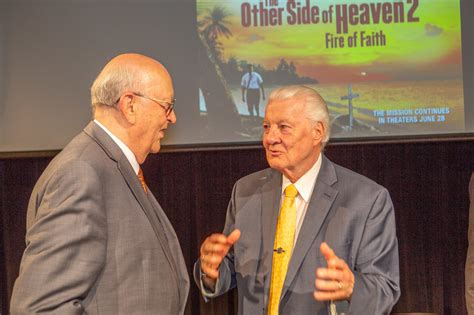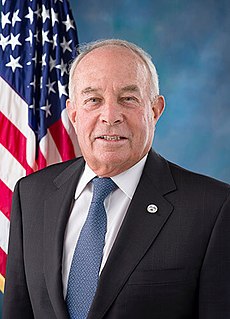A Quote by John Hagee
Mercy requires that we learn to love others, to value their welfare more than our own!
Related Quotes
If we don't love ourselves, we would not love others. When someone tell you to love others first, and to love others more than ourselves; it is impossible. If you can't love yourselves, you can't love anybody else. Therefore we must gather up our great power so that we know in what ways we are good, what special abilities we have, what wisdom, what kind of talent we have, and how big our love is. When we can recognize our virtues, we can learn how to love others.
It requires something more than personal experience to gain a philosophy or point of view from any specific event. It is the quality of our response to the event and our capacity to enter into the lives of others that help us to make their lives and experiences our own. In my own case my convictions have derived and developed from events in the lives of others as well as from my own experience. What I have seen meted out to others by authority and repression, economic and political, transcends anything I myself may have endured.
We need others for our physical, emotional, and spiritual well-being. Without others we are nothing. Our sense that we are an island, an independent, self-sufficient individual, bears no relation to reality. It is closer to the truth to picture ourself as a cell in the vast body of life, distinct yet intimately bound up with all living beings. We cannot exist without others, and they in turn are affected by everything we do. The idea that it is possible to secure our own welfare while neglecting the welfare of others, or even at the expense of others, is completely unrealistic.
If in the human economy, a squash in the field is worth more than a bushel of soil, that does not mean that food is more valuable than soil; it means simply that we do not know how to value the soil. In its complexity and its potential longevity, the soil exceeds our comprehension; we do not know how to place a just market value on it, and we will never learn how. Its value is inestimable; we must value it, beyond whatever price we put on it, by respecting it.
How strange that we should ordinarily feel compelled to hide our wounds when we are all wounded! Community requires the ability to expose our wounds and weaknesses to our fellow creatures. It also requires the ability to be affected by the wounds of others... But even more important is the love that arises among us when we share, both ways, our woundedness.
?Interdependence is a fundamental law of nature. Even tiny insects survive by mutual cooperation based on innate recognition of their interconnectedness. It is because our own human existence is so dependent on the help of others that our need for love lies at the very foundation of our existence. Therefore we need a genuine sense of responsibility and a sincere concern for the welfare of others.
In brief, I regard love as a more decisive focus of meaning than death. In terms of Heidegger's argument, this is because I think he misdescribes the importance of the deaths of others and focuses exclusively on my relation to my own death. But, in reality, the deaths of others have a more urgent and immediate impact on our lives than the purely notional knowledge that I too will one day die.





































